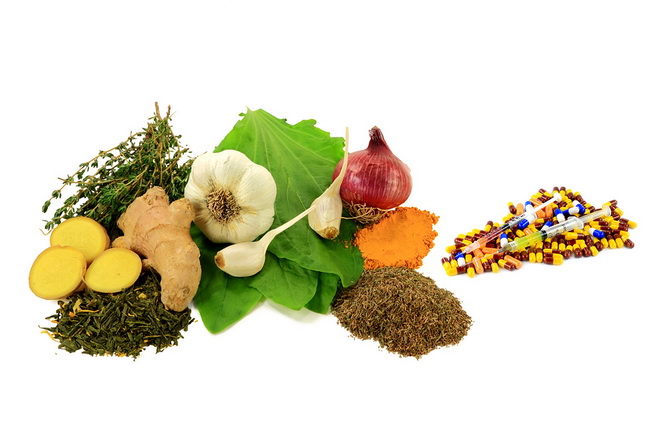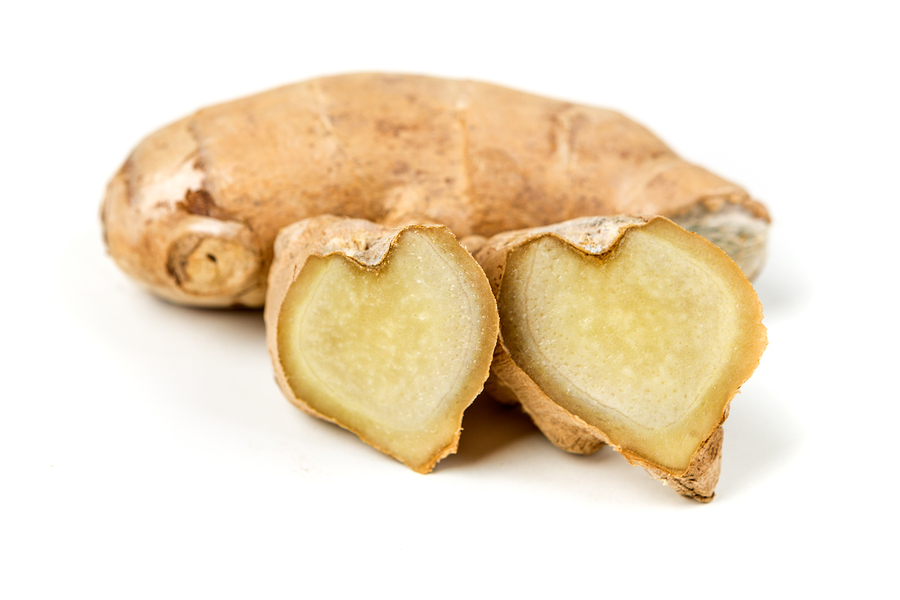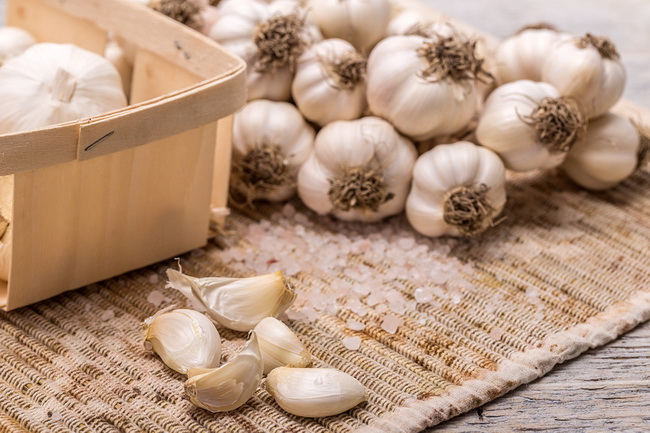- Make It Yourself Lavender Heart-Shaped Bath Bombs!
- 20 Things You Never Knew About “Down There”
- 12 Best Foods For Those Suffering From Arthritis Pain
- 12 Personal Hygiene Mistakes Almost Everyone Makes (Mom Never Told You About #4!)
- 15 Medicinal Plants And Herbs From The Cherokee People
- 12 Mind-Blowing Benefits Of Drinking Coconut Water During Pregnancy
- 12 Outstanding Winter Foods That Won’t Fatten You Up Like A Christmas Turkey
10 All Natural Antibiotics You Don’t Need A Prescription For

Photo credit: bigstock.com
There are so many medications that have worse side effects than the disease they have been prescribed to treat. Most doctors are provided sample medications to pass along to their patients and they just keep trying one new prescription after another. Most don’t resolve your problem anyway. Medications that are strong enough to take away your pain are not drugs that you should be taking on a long term basis.
Most of us have snickered as we have heard an advertisement for a new medication and the company must spell out all of the side effects in advance. Some of them actually list side effects that make people turn down the medication because they are too afraid. It has been noted that 30% of the antibiotics that are prescribed are not required but merely prescribed to try first. The good news is that there are antibiotics available that are all natural, have no side effects, and you don’t even need a prescription for them. Check out these alternatives to pharmaceuticals you need to get filled at your pharmacy and that come with some disturbing side effects.
1. Raw Honey
The effects of honey have been known since the Romans used it to handle their infections, from taking care of existing wounds to preventing future ones. Honey has an enzyme in it that produces hydrogen peroxide which makes it a perfect wound treatment. When adding raw honey to your medicine cabinet, you have to make sure that it is organic and unpasteurized. Besides fighting infections honey can eliminate sore throats, colds, and some issues with your digestive system.
2. Apple Cider Vinegar
Apple cider vinegar has properties that can actually treat cancer or prevent it in the first place. The vinegar has properties as an antibiotic, antiseptic, and anti-fungal. In addition to warding off cancer it can help reduce your cholesterol, eliminate your heartburn, and keep your weight in check.
Continue to Page 2

Photo credit: bigstockphoto.com
3. Ginger Extract
Ginger has such a proven history of dealing with food and digestive issues, it is often served in a pickled state with raw sushi to keep the chances of getting food poisoning to a minimum. Fresh ginger has been used as an antibiotic in treating salmonella, campylobacter, and listeria. It’s not a coincidence that you may have been given some ginger ale to sip on when you were little and had a tummy ache. Besides digestive issues, ginger has been known to treat colds, asthma, stomach aches, nausea, and heart palpitations.
4. Turmeric
Turmeric has a main component called curcumin which makes it extremely effective as an antibacterial. It’s use as an anti-inflammatory has proven to reduce inflammation as effectively as an over-the-counter nonsteroidal anti-inflammatory drug (NSAID). If you are interested in taking turmeric as an antibiotic just add a dose of 400 to 600 mg of it up to three times every day.
5. Oregano Oil
Even though there are more than 40 species of oregano on the market, the main one to look for is the oil that comes from wild oregano, organum vulgare. You can use oregano oil topically to treat your foot problems or fungus on your nails. If you are trying to keep an infection from settling in, put a bit of the oil that has been diluted under your tongue. Create your own steam bath with a couple of drops of oregano oil in some hot water and tent it to keep your sinuses clear.
6. Pau d’Arco
Many times the result of taking too many antibiotics leaves the recipient with a yeast infection known as Candida. Pau d’Arco handles candida and reduces the extra cravings for sugar that many people are left with. The best way to put this herb to work is to consume it as a hot tea. Just taking a cup or two for a couple of days will get your gut back to its regular state again.
Continue to Page 3

Photo credit: bigstockphoto.com
7. Garlic
There are so many health benefits for using garlic. You will find it can handle just about any area you may have problems with. It is an anti-fungal, antibacterial, and antiviral food you can easily incorporate into your diet. It can prevent any damage to DNS as well as prevent you from encountering any damage from the sun or radiation. Garlic has been known to ward off parasites and worms, and keeps your digestion operating smoothly at all times. You can infuse extra virgin olive oil with crushed garlic
8. Echinacea
Echinacea has always been effective in treating infections. However, it is it’s ability to take on one of the most potent and deadly forms of bacteria staphylococcus aureaus, that is really impressive. Staphylococcus aureaus can result in MRSA, which can be deadly. In Germany, scientists who researched Echinacea found that those who participated in a double-blind clinical trial had a 1/3 to a 1/2 less viral infections than those who received the placebo. In order to get the most benefits from Echinacea, you can take 300 mg up to three times per day or 900 mg per day. Kids up to 13 years of age can take 1/2 of the adult dose and kids under 6 years of age can take a 1/4 of the dose that an adult takes.
9. Colloidal Silver
This alternate antibiotic has proven not only to successfully get rid of harmful bacteria but it is also able to kill off the resistant bacteria and has no dangerous side effects to deal with. The main way that colloidal silver works best is externally only topically on the skin for infections in the ear and gargling to soothe sore throat.
READ ALSO: The Wonderful And Terrible Truth About Antibiotics Infographic
10. Cayenne Pepper
Cayenne pepper is also known as capsicum and is able to effectively treat an infection in women known as vulvovaginitis. Used in conjunction with something like olive oil, it works best when it is diluted to alleviate the burning feeling it exudes. It has also been known to resolve a strep throat and has always been known as a powerful antibiotic as well as an anti-fungal.
References:
































